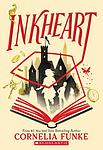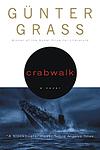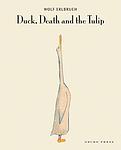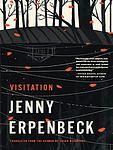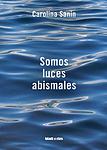The Greatest Colombian, German "Fiction" Books Since 2000
Click to learn how this list is calculated.
This list represents a comprehensive and trusted collection of the greatest books. Developed through a specialized algorithm, it brings together 284 'best of' book lists to form a definitive guide to the world's most acclaimed books. For those interested in how these books are chosen, additional details can be found on the rankings page.
Genres
Countries
Date Range
Reading Statistics
Click the button below to see how many of these books you've read!
Download
If you're interested in downloading this list as a CSV file for use in a spreadsheet application, you can easily do so by clicking the button below. Please note that to ensure a manageable file size and faster download, the CSV will include details for only the first 500 books.
Download-
1. Austerlitz by W. G. Sebald
The novel follows the story of Jacques Austerlitz, an architectural historian who was brought to England on a Kindertransport from Czechoslovakia during World War II. As an adult, Jacques embarks on a journey to uncover his past, including his original identity, his parent's fate, and his own lost history. The narrative is a haunting exploration of memory, identity, and the lasting impact of the Holocaust.
-
2. The Book Thief by Markus Zusak
Set in Nazi Germany during World War II, the novel follows the story of a young girl who finds solace in stealing books and sharing them with others. In the midst of the horrors of war, she forms a bond with a Jewish man her foster parents are hiding in their basement. The story is narrated by Death, offering a unique perspective on the atrocities and small acts of kindness during this period. The girl's love for books becomes a metaphor for resistance against the oppressive regime.
-
3. The Swarm by Frank Schatzing
"The Swarm" is a science fiction novel that explores the disastrous consequences of mankind's exploitation of the world's oceans. The narrative follows a group of scientists around the world as they try to understand a series of inexplicable, catastrophic natural disasters. They eventually discover that these events are not random but are the result of a collective intelligence in the sea, a swarm of marine life that has decided to fight back against humanity's destruction of their habitat. The book combines elements of ecological thriller, disaster novel, and speculative fiction as it explores the potential consequences of human interference with the natural world.
-
4. Inkheart by Cornelia Funke
The book revolves around a young girl named Meggie and her father Mo, who possesses a unique ability to bring characters from books to life by reading aloud. This gift, however, comes with a price, as they are entangled in a dangerous adventure when a villain from a fantasy book called "Inkheart" is accidentally summoned into the real world. As they struggle to fix the chaos caused by this crossover, they must navigate a treacherous world of magic and betrayal, while attempting to thwart the villain's sinister plans and protect the balance between reality and the fantastical realms of literature.
-
5. Measuring the World by Daniel Kehlmann
"Measuring the World" is a historical novel that reimagines the lives of two brilliant and driven men, German mathematician Carl Friedrich Gauss and German geographer Alexander von Humboldt. The narrative alternates between the two protagonists, exploring their individual quests to quantify and understand the world. Gauss, a child prodigy from a poor family, rises to become one of the greatest mathematicians in history, while Humboldt, a wealthy and ambitious explorer, embarks on a five-year journey across South America. Their paths converge in a humorous and touching manner, highlighting the contrast between their approaches to knowledge and discovery.
-
6. The Blind Side of the Heart by Julia Franck
"The Blind Side of the Heart" is a historical novel that explores the life of a German woman before, during, and after World War II. The story begins with her abandonment of her young son at a railway station, then flashes back to her own childhood, her experiences during the war, and her tumultuous relationships. The narrative provides a deep and unflinching look at the psychological effects of war and the struggle for survival, as well as the profound impact of trauma and loss.
-
7. The Sound Of Things Falling by Juan Gabriel Vásquez
"The Sound Of Things Falling" is a thought-provoking novel that delves into the complex and haunting aftermath of the drug trade in Colombia. Set against the backdrop of a turbulent country, the story follows the lives of two men whose paths intertwine in unexpected ways. Through vivid storytelling and poignant reflections, the book explores themes of memory, guilt, and the lasting impact of violence on individuals and society.
-
8. Crabwalk by Günter Grass
This novel delves into the tragic sinking of the Wilhelm Gustloff, a German ship, during World War II, through the eyes of a journalist investigating the event's historical and personal ramifications. The narrative weaves together past and present, exploring the intergenerational impact of the catastrophe on survivors and their descendants. The author employs a unique storytelling technique, the "crabwalk," moving backward and forward in time to reveal the complexities of guilt, memory, and the reinterpretation of history. Through its intricate plot and deep character exploration, the book addresses the themes of nationalism, the repercussions of war, and the struggle to come to terms with one's heritage.
-
9. Duck, Death And The Tulip by Wolf Erlbruch
"Duck, Death And The Tulip" is a poignant and thought-provoking illustrated book that explores the themes of life, death, and friendship. The story follows a duck who unexpectedly befriends Death, and together they embark on a journey of contemplation and acceptance. Through their conversations and experiences, the book delicately tackles the existential questions surrounding mortality, while offering a tender and comforting perspective on the inevitability of death.
-
10. Delirio(premio Alfaguara 2004) by Laura Restrepo
The novel revolves around a man who returns to Bogotá from a business trip only to find his wife has succumbed to an inexplicable bout of madness during his absence. As he seeks to uncover the roots of her delirium, he delves into her past and the dark history of his country, encountering a tapestry of characters from various strata of Colombian society. The narrative weaves together personal and political elements, exploring themes of love, violence, and the impact of the drug trade, ultimately painting a portrait of a society where reality and madness are intertwined.
-
11. Crime by Ferdinand Von Schirach
"Crime" is a collection of short stories that explores the complexities of human behavior and the legal system. Each story presents a different crime and delves into the motivations and consequences behind it, challenging readers to question their own notions of justice and morality. With a keen eye for detail and a unique perspective, the author weaves together thought-provoking narratives that expose the intricacies of the human psyche and the flaws of the legal system.
-
12. The Invention Of Nature: Alexander Von Humboldt’s New World by Andrea Wulf
"The Invention of Nature" is a biographical account of Alexander von Humboldt, a 19th-century explorer, scientist, and naturalist who revolutionized the way we understand the natural world. Andrea Wulf chronicles Humboldt's travels across South America, his encounters with indigenous peoples, and his groundbreaking scientific discoveries that challenged prevailing notions of the natural world. Humboldt's ideas about interconnectedness and the unity of nature were ahead of their time and continue to influence environmentalism and conservation today. Wulf's book is a masterful exploration of one of history's most fascinating and influential figures.
-
13. Visitation by Jenny Erpenbeck
"Visitation" is a novel that explores the history of a house located by a lake in Brandenburg, Germany, and the various inhabitants it has seen over the centuries. The narrative spans from the early 20th century to the post-war period, encompassing the tumultuous events of the Weimar Republic, the Third Reich, and the German Democratic Republic. Each chapter is dedicated to a different resident's story, including a Jewish family, an architect, a young girl, and a Soviet officer, among others, creating a tapestry of human experiences and emotions shaped by the historical and political upheavals of the time.
-
14. Fortune's Wheel by Rebecca Gablé
"Fortune's Wheel" is a historical novel that transports readers to the tumultuous period of the Hundred Years' War and the Black Death in Europe. The story revolves around a young English craftsman who rises from the ashes of personal tragedy. As he navigates the complex social hierarchies and political turmoil of the 14th century, he finds himself caught between loyalty and ambition, love and duty. The protagonist's journey is one of resilience and transformation, set against the backdrop of a world where the whims of fate can uplift or destroy the fortunes of men. Through vivid storytelling, the novel explores themes of power, destiny, and the enduring human spirit.
-
15. The Armies by Evelio Rosero
The novel delves into the harrowing experiences of Ismael, an elderly retired teacher in a small Colombian town plagued by political violence. As he navigates the complexities of his daily life, which includes a deep affection for his garden and his wife, the town becomes increasingly engulfed by the chaos of warring factions. The narrative captures the sense of dread and the abruptness of violence as neighbors disappear and the social fabric unravels, revealing the profound impact of conflict on ordinary lives. Ismael's journey becomes a poignant exploration of the human condition amidst the terror of the unseen and the struggle to maintain a semblance of normalcy and dignity in a world falling apart.
-
16. Duermevela by Melba Escobar
"Duermevela" is a compelling narrative that delves into the complexities of human consciousness and the blurred lines between wakefulness and dreaming. The story unfolds through the experiences of its protagonist, who navigates a series of surreal and introspective episodes, challenging the reader's perception of reality. As the character's journey progresses, the novel explores themes of identity, memory, and the subconscious, weaving a tapestry of psychological intrigue that invites contemplation about the nature of our existence and the enigmatic state that exists between sleeping and being awake.
-
17. The Collini Case by Ferdinand Von Schirach
This gripping legal thriller delves into the complexities of the German legal system through the lens of a seemingly inexplicable murder case. When an elderly industrialist is found brutally murdered, the suspect, an Italian man with no apparent motive, confesses to the crime, sparking a sensational trial. The young defense attorney assigned to the case finds himself embroiled in a deep-seated legal conundrum that challenges his beliefs about justice and morality. As he delves deeper, he uncovers a dark chapter of German history that reveals the true motive behind the murder, forcing him to confront uncomfortable truths about the past and its impact on the present. This novel is a compelling exploration of guilt, redemption, and the quest for justice in the shadow of historical atrocities.
-
18. Los Estratos by Juan Cárdenas
"Los Estratos" is a thought-provoking novel that delves into the complexities of social stratification and personal identity in contemporary Colombia. Through the eyes of its protagonist, a middle-aged man undergoing an existential crisis, the narrative explores themes of class, race, and the search for meaning in a society marked by deep inequalities and historical scars. As he navigates a series of encounters with various individuals from different social layers, the protagonist's introspective journey reveals the fragmented nature of human experience and the elusive quest for self-understanding within the stratified landscape of modern life.
-
19. The Children by Carolina Sanín
The book is a haunting exploration of solitude and the unexpected ways in which lives can intersect. It follows the story of a woman who leads a solitary life in a city, her routine existence disrupted by the sudden appearance of a silent, enigmatic child at her doorstep. As she takes the child into her home, the woman is drawn into a surreal journey that blurs the lines between reality and imagination, prompting her to confront her own past and the mysteries of human connection. The narrative weaves a tapestry of magical realism and psychological depth, examining themes of loneliness, motherhood, and the search for belonging in an indifferent world.
-
20. The Bitch by Pilar Quintana
The novel explores the intense bond between a young woman and her dog as they navigate life in a remote, impoverished village on the Colombian Pacific coast. The protagonist, who struggles with the harsh realities of her environment and the societal expectations placed upon her, finds solace in her relationship with the dog. However, when the dog gives birth to a litter and a tragic event occurs, the woman is forced to confront the brutal nature of her world and the instincts that drive both human and animal behavior. The story delves into themes of motherhood, survival, and the thin line between civilization and wildness.
-
21. Somos Luces Abismales by Carolina Sanin
"Somos Luces Abismales" is a contemplative narrative that delves into the inner world of a woman who, while working as a teacher, grapples with the complexities of her existence and the nature of being. Through a series of introspective episodes and interactions with her students, she explores themes of loneliness, the search for meaning, and the human condition. The book weaves a tapestry of philosophical reflections, everyday occurrences, and the protagonist's personal revelations, painting a picture of life's profound and often overlooked moments.
-
22. An Orphan World by Giuseppe Caputo
In this evocative novel, a father and son navigate the margins of a Latin American city, living in poverty and facing the dual threats of violence and social discrimination. Their bond is a source of strength and resilience as they confront the challenges of their precarious existence. The son, through a series of lyrical and poignant vignettes, explores his sexuality and seeks connection in a world that is often hostile to his desires. The narrative weaves a tapestry of love, loss, and longing, painting a portrait of a relationship that defies the darkness of their circumstances with moments of beauty and tenderness.
-
23. Los Días Azules by Fernando Vallejo
"Los Días Azules" is a reflective and autobiographical narrative that delves into the author's memories of his childhood and youth in Colombia. The book paints a vivid picture of the author's family life, the cultural and social environment of his upbringing, and the formative experiences that shaped his worldview. Through a series of poignant and often critical recollections, the author explores themes of love, loss, and the passage of time, all set against the backdrop of a country marked by political turmoil and societal change. The narrative is characterized by its lyrical prose and introspective tone, offering readers a deeply personal glimpse into the author's past and the moments that have defined his life's journey.
-
24. Alberta empfängt einen Liebhaber by Birgit Vanderbeke
"Alberta empfängt einen Liebhaber" is a German novel that explores the life of Alberta, a woman in her forties who lives a routine life with her husband and children. Her world is turned upside down when she begins an affair with a much younger man. The novel delves into her internal struggle as she tries to reconcile her traditional values with her newfound passion and freedom. The story is a profound exploration of middle age, femininity, and the complexities of desire.
-
25. The Tower by Uwe Tellkamp
The novel is an intricate exploration of life in Dresden, East Germany, before the fall of the Berlin Wall, focusing on the lives of an aristocratic family. Through a detailed narrative, it delves into the complexities of living under a repressive regime, highlighting the struggles of the intellectual elite as they navigate censorship, surveillance, and the moral compromises required to maintain their status and beliefs. The story, rich in detail and character development, paints a vivid picture of a society on the brink of change, capturing the tension between personal ambition and political ideology.
Reading Statistics
Click the button below to see how many of these books you've read!
Download
If you're interested in downloading this list as a CSV file for use in a spreadsheet application, you can easily do so by clicking the button below. Please note that to ensure a manageable file size and faster download, the CSV will include details for only the first 500 books.
Download


